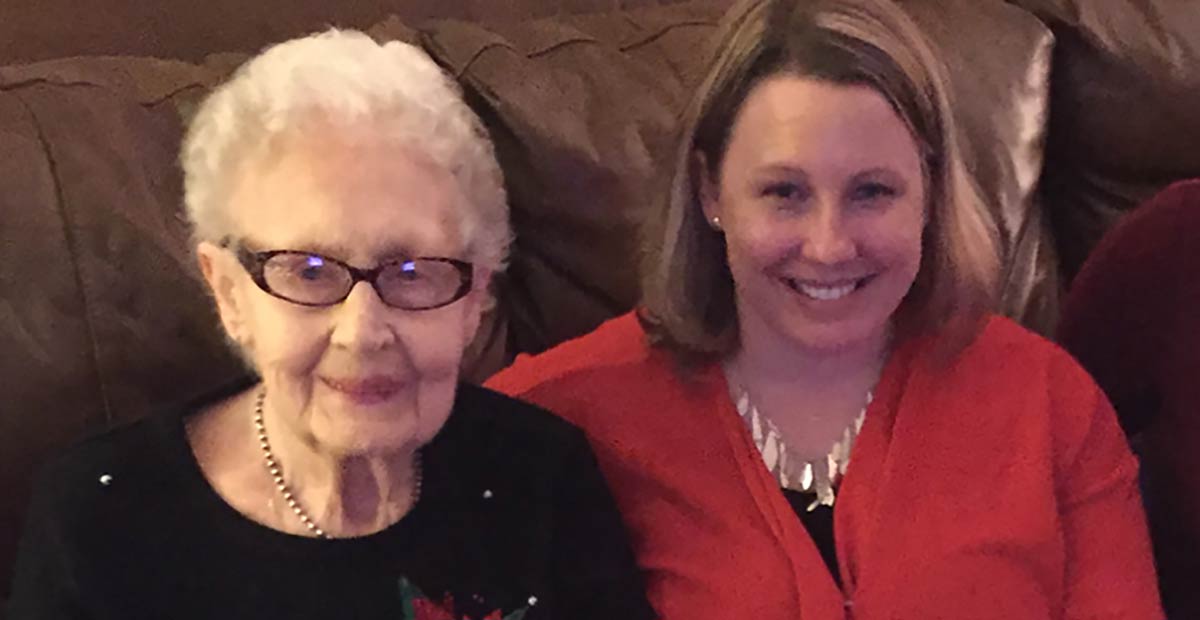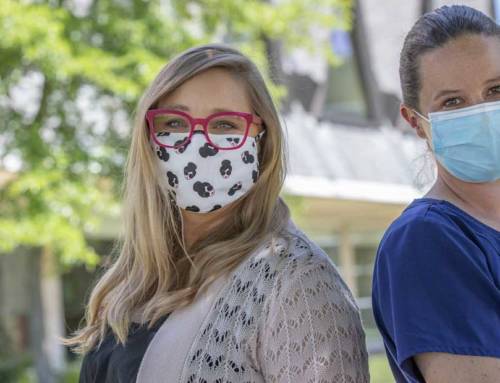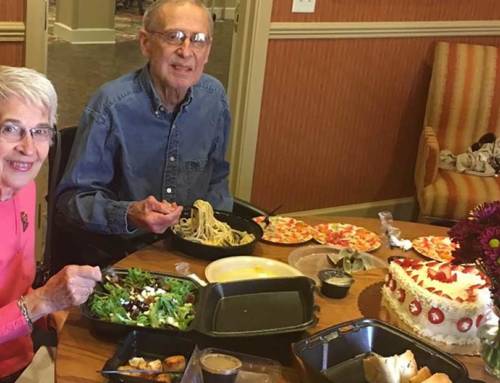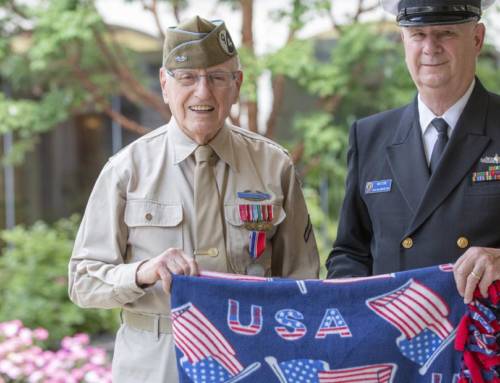Jill Stauffer’s life was moving fast. She and her husband were keeping up with their toddler son and had another on the way when time suddenly stopped. In November 2016, Jill’s grandmother, Bea, was diagnosed with cancer after suffering from respiratory issues that she thought were only temporary.
Jill was deeply impacted by this news, as she had a special bond with her grandmother. “She was just humble and easy to be around,” Jill says. “She loved her family, and we loved her.”
Jill had always been inspired by her grandparents, who left everything they knew behind in England when they moved to the United States with their teenage son and daughter for a better way of life.
Two years before Bea became ill, Jill’s mother was diagnosed with dementia – a shock for a woman in her 60s.
“Unfortunately, my mom couldn’t care for my grandmother like I know she really wanted to,” Jill recalls.
Before her diagnosis, Jill’s mother was the main caregiver for both her parents, so Jill wanted to maintain that support.
With her uncle living out of state, Jill took the lead on coordinating Bea’s care, which, as weeks passed, became more of a necessity. When the time came, Jill started considering hospice care. She decided to speak with Maureen Dolk-Metcalfe, director of Masonic Village Hospice, whom she knew from the exercise classes she attends at her local gym.
“She gave me all kinds of advice,” Jill recalls. “It was difficult for my grandma because she was such an independent person, and she didn’t want people to have to care for her. She was convinced she would get better.”
When Jill brought up the thought of hospice to Bea, it went as expected.
“She was resistant to accept hospice at first,” Jill recalls. “She was always so healthy, so it was hard for her to give that up. I think, at first, hospice made her feel like she was giving in.”
After hearing from Jill, Maureen visited Bea to explain exactly what hospice is all about.
“I was a full-time teacher, and I was six months pregnant,” Jill said. “I was never going to turn down the extra support; it was just getting her on board. She met Maureen, and I said, ‘Nanna, this is my friend.’”
Bea agreed to start receiving care from hospice in December, but Jill is still positive it was only to appease her. However, immediately, both Bea and Jill started seeing the benefits of hospice care.
“It was a family approach, not a clinical approach,” Jill said. “It was just what we needed because she got sick right around the holidays, which are supposed to be a happy time.”
Jill calls herself a planner, which is a tendency she follows through with, even when it’s difficult. Her personality made her a perfect fit with her grandmother’s hospice nurse, Bob Heim.
“I had a lot of hard conversations with Bob,” Jill recalls. “I asked him to tell me the truth – what was I going to see in this process? I knew she wanted to make it to see my second son. I asked Bob his thoughts, and he helped me manage my expectations in a kind and gentle way.”
In her career as a school counselor, Jill has to work hard to develop emotional boundries when dealing with the tough situations she sees day in and day out. She was in awe of the way hospice staff handles the difficult situations they are part of on a regular basis.
“They see people die frequently, but they made us and our journey feel unique,” Jill said. “They treated my grandma like she was their grandma. I just know they worked past their shifts to care for her, but you’d think they work 24/7 because they didn’t make it known.”
In getting to know Bea, hospice staff found she was proud of her service in the British Royal Air Force and decided to conduct a special ceremony for her, featuring a patriotic hand-made blanket designed with the flag of England.
In January 2017, Bea’s health began rapidly declining. Between working full-time and taking care of her family, Jill relied even more heavily on hospice to be her eyes and ears when she wasn’t able to be by Bea’s side. Luckily, by this time, Jill’s uncle had relocated to Pennsylvania and was able to be a bigger part of his mother’s care.
When Bea’s life journey was down to its final hours, Jill struggled to know when to have her mother come to say goodbye.
“I told Bob, ‘I know you’re not God, but you have to tell me when my parents should come,’” Jill said. “When he said, ‘Your parents should come,’ I knew it was time. I stayed all night with her, pregnant and in a recliner, because I didn’t want her to die alone.”
Jill went home the next morning to catch a few hours of much-needed sleep, and while she was gone, Bea passed away at age 94 with her daughter and son-in-law by her side.
“My mom got the goodbye she needed,” Jill said. What happened next still brings tears to her eyes.
“Hospice staff came in to say goodbye to her, because they cared for her so much,” Jill said.
One of Bea’s certified nursing assistants developed a special relationship with her. “She asked to have a moment alone with her to say goodbye,” Jill said. “She put lotion on her and cleaned her up. She wanted to make sure she looked okay and had that dignity even at the end.”
When Jill reflects on those nearly three months of her life, they felt like years. She also feels that she has known the hospice staff her whole life. It was the small things that hospice did that eased Jill’s mind – like bringing in snacks and coffee for her – but it was also the big things.
“Hospice knew how to deliver amazing, loving care to people who were feeling at a loss,” Jill said. “There is no way to repay them, but I hope they really do know how much they are appreciated. I needed them.”




